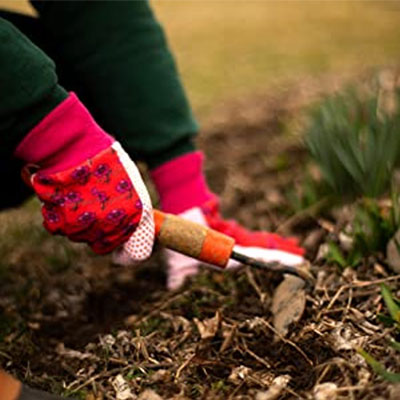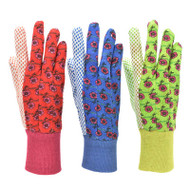Tips for Buying Gardening Gloves: What to Consider
Mar 30th 2023
You've always desired a lush green garden? What if we told you that you could give your plant offspring the best care possible on your own? Gardening work gloves are one of the most crucial accessories you can purchase if you're intending on doing any yard work or gardening this season. In addition to protecting your hands, a decent set of gardening gloves will make your job much simpler. After all, nobody wants to remain in the garden with drenched fingernails and sweaty hands. However, it can be difficult to choose the best gloves for you and your garden because there are so many choices available.

Here is all the information you require to select the best gardening work gloves for your requirements.
Why do you need garden gloves?
Wearing gardening work gloves when weeding, planting, or harvesting is crucial, as anyone who has been involved in horticulture for some time knows. Nothing can make you realize how useful proper garden gloves can be more than suffering a painful snip from a rose thorn or bramble or having a nasty splinter lodged under your fingernail.
Wearing gardening gloves while working in your yard is essential because they protect you from thorns and other sharp objects. Additionally, you can shield your hands from rashes and blisters that might develop after working in your yard for a prolonged period of time. Last but not least, some gardening gloves have unique materials on them that help to protect them from things like light chemicals. For instance, many garden work gloves have coatings that are chemical-resistant for jobs like pulling weeds or adding fertilizer; additionally, these gloves may be waterproof, which can help keep your hands dry.

However, choosing the right garden gloves can make a big difference in how comfortable and protected your hands are while working in your garden. Here are some tips to help you choose the best garden gloves for your needs:
Consider the material: Garden gloves come in a variety of materials, including leather, synthetic, cotton, and rubber. Leather gloves are durable and provide good protection, but can be hot and may not be very flexible. Synthetic gloves are often more flexible and breathable, but may not be as durable. Cotton work gloves are lightweight and breathable, but may not provide much protection. Rubber gloves are great for wet conditions and provide a good grip, but may not be as comfortable for extended use.

Think about the type of gardening you will be doing: If you will be doing a lot of digging and handling thorny plants, you will want gloves with thicker material and reinforced fingertips. If you will be doing more delicate tasks like planting and weeding, you may want gloves with a thinner, more flexible material that allows you to feel what you're doing.
Check the fit: Make sure the gloves fit snugly but not too tight. Garden work Gloves that are too loose can slip off and gloves that are too tight can restrict movement and be uncomfortable.
Consider the length: Some gloves only cover your hands, while others extend up your arms. If you will be working with plants that have thorns or prickly foliage, you may want gloves that cover your forearms as well.
Look for gloves with a good grip: If you will be working with tools or handling slippery objects, you will want gloves with a good grip to prevent accidents.
Check for durability: Make sure the gloves are well-made and can withstand the tasks you will be performing. Look for gloves with reinforced stitching and sturdy materials.
Consider the price: Garden gloves come in a wide range of prices. While you don't want to sacrifice quality, you also don't want to overspend. Choose gloves that meet your needs and fit your budget.
By considering these factors, you should be able to choose garden work gloves that will provide the protection and comfort you need for your gardening tasks.
